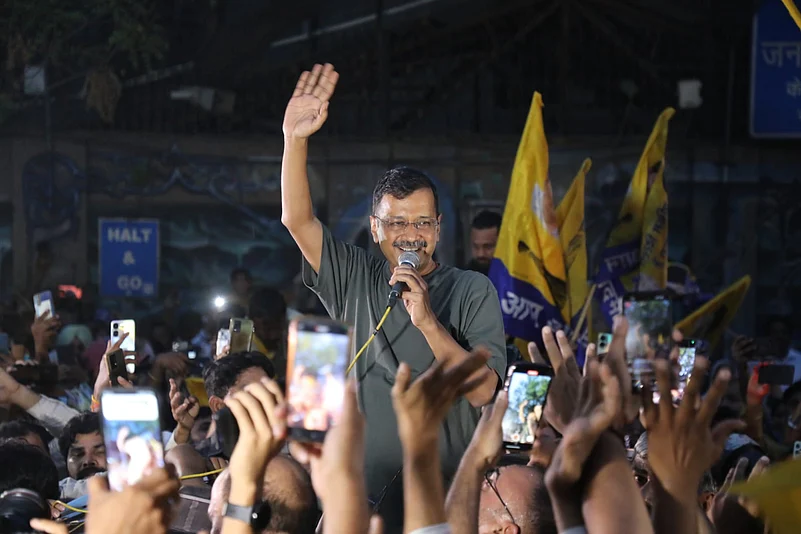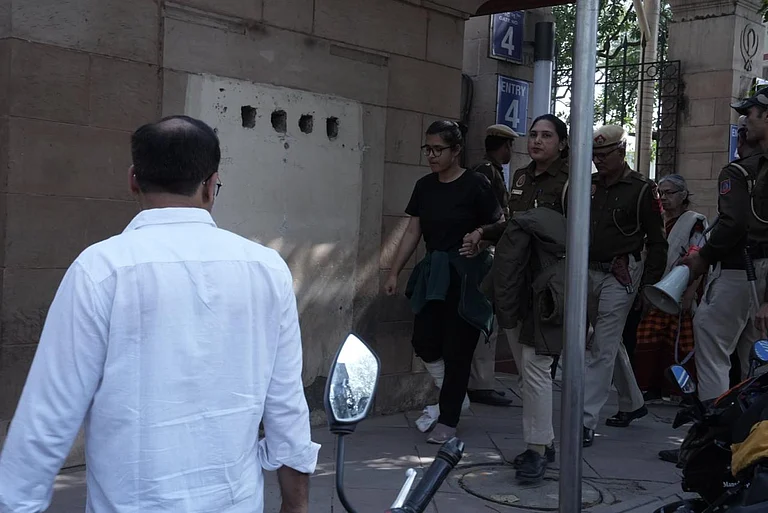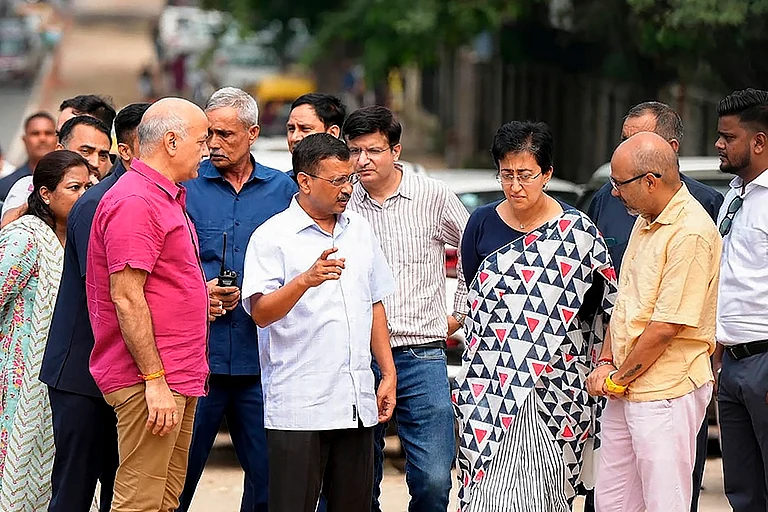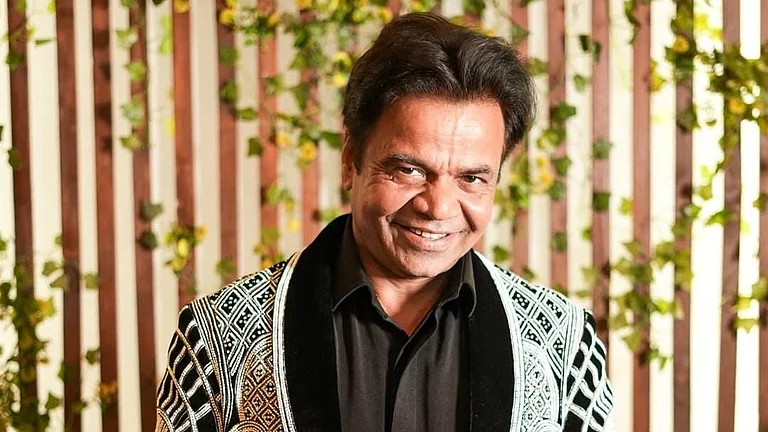The Supreme Court on Thursday refused to consider ED's objection to statement Arvind Kejriwal made while being out in interim bail that if people vote for Aam Aadmi Party (AAP), he will not go back to jail on June 2.
During the hearing of Delhi CM Arvind Kejriwal’s plea against his arrest in the Delhi excise policy case, the Enforcement Directorate (ED) on Thursday raised objection before the Supreme Court, saying he made a speech that if people vote for his party he wouldn’t have to go to jail.
Supreme Court said it will not get into this and its order is clear when he has to surrender.
Steering clear of the political talk about it having made an exception for Delhi Chief Minister Arvind Kejriwal in granting him interim bail for campaigning in the Lok Sabha polls, the Supreme Court said "critical analysis of the judgement is welcome".
"We have not made any exception for anybody. We said in our order what we felt was justified," the bench said.
Delhi Chief Minister and AAP supremo Arvind Kejriwal got bail last week from the Supreme Court till June 1 in connection with the excise or liquor policy case on Friday to campaign for the Lok Sabha elections 2024.
Kejriwal got bail on several conditions, including a ban on visiting the chief minister's office or the secretariat.
Arvind Kejriwal was arrested by the ED on March 21 after he skipped multiple summons in connection with the probe agency's investigation of a money laundering case linked to the Delhi excise policy 'scam'. Kejriwal was subsequently sent to judicial custody and was lodged in Tihar jail.
During the hearing on Thursday, the Supreme Court said, "We have not made any exception for anybody, we said in our order what we felt was justified."


























